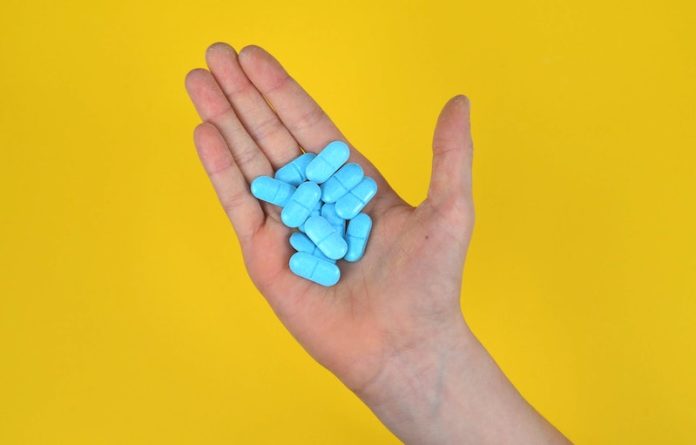
In a study from the University of Cambridge and elsewhere, scientists found an off-patent drug that can be repurposed to prevent COVID-19—and may be capable of protecting against future variants of the virus.
They showed that an existing drug used to treat a type of liver disease is able to “lock” the doorway by which SARS-CoV-2 enters our cells, a receptor on the cell surface known as ACE2.
Because this drug targets the host cells and not the virus, it should protect against future new variants of the virus as well as other coronaviruses that might emerge.
If confirmed in larger clinical trials, this could provide a vital drug for protecting those people for whom vaccines are ineffective or inaccessible as well as people at increased risk of infection.
The team hopes it may be more resilient to changes resulting from the evolution of the SARS-CoV-2 spike, which results in the rapid emergence of new variants.
This is one of the first studies to test the effect of a drug on a whole human organ while it’s being perfused.
This could prove important for organ transplantation—given the risks of passing on COVID-19 through transplanted organs, it could open up the possibility of treating organs with drugs to clear the virus before transplantation.
The team also recruited eight healthy volunteers to receive the drug.
When they swabbed the noses of these volunteers, they found lower levels of ACE2, suggesting that the virus would have fewer opportunities to break into and infect their nasal cells—the main gateway for the virus.
While it wasn’t possible to run a full-scale clinical trial, the researchers did the next best thing:
looking at data on COVID-19 outcomes from two independent cohorts of patients, comparing those individuals who were already taking UDCA for their liver conditions against patients not receiving the drug.
They found that patients receiving UDCA were less likely to develop severe COVID-19 and be hospitalized.
The team says the drug could be an affordable and effective way of protecting those for whom the COVID-19 vaccine is ineffective or inaccessible.
If you care about COVID, please read studies about new way to predict severe COVID-19 and past COVID-19 infection, but not vaccination, could boost antibodies.
For more information about COVID, please see recent studies about rare blood clots after COVID-19 vaccination, and new antiviral drug may block COVID-19 transmission.
The study was conducted by Dr. Fotios Sampaziotis et al and published in Nature.
Copyright © 2022 Knowridge Science Report. All rights reserved.



